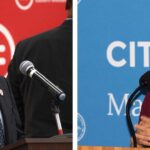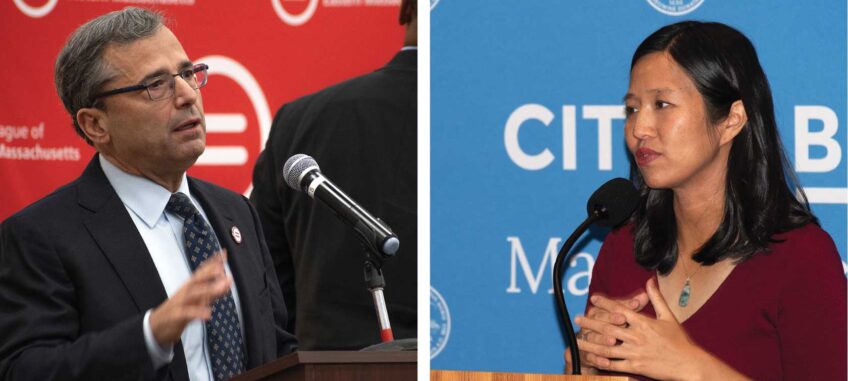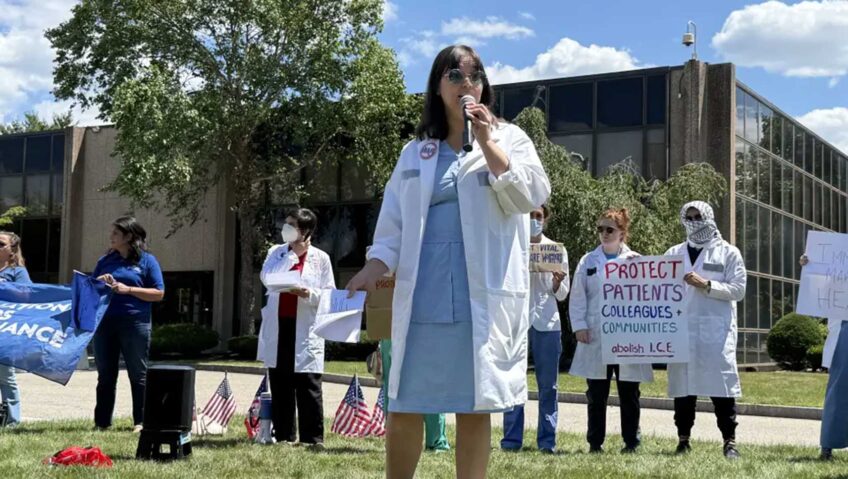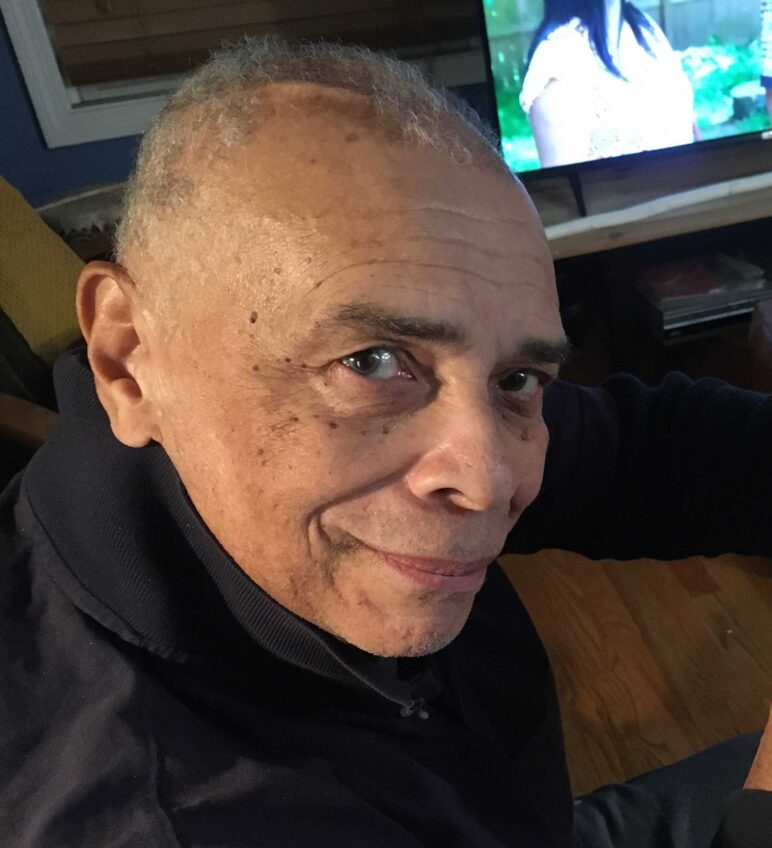Wu appoints Director of Nightlife Economy
Corean Reynolds aims to foster more varied, inclusive nightlife
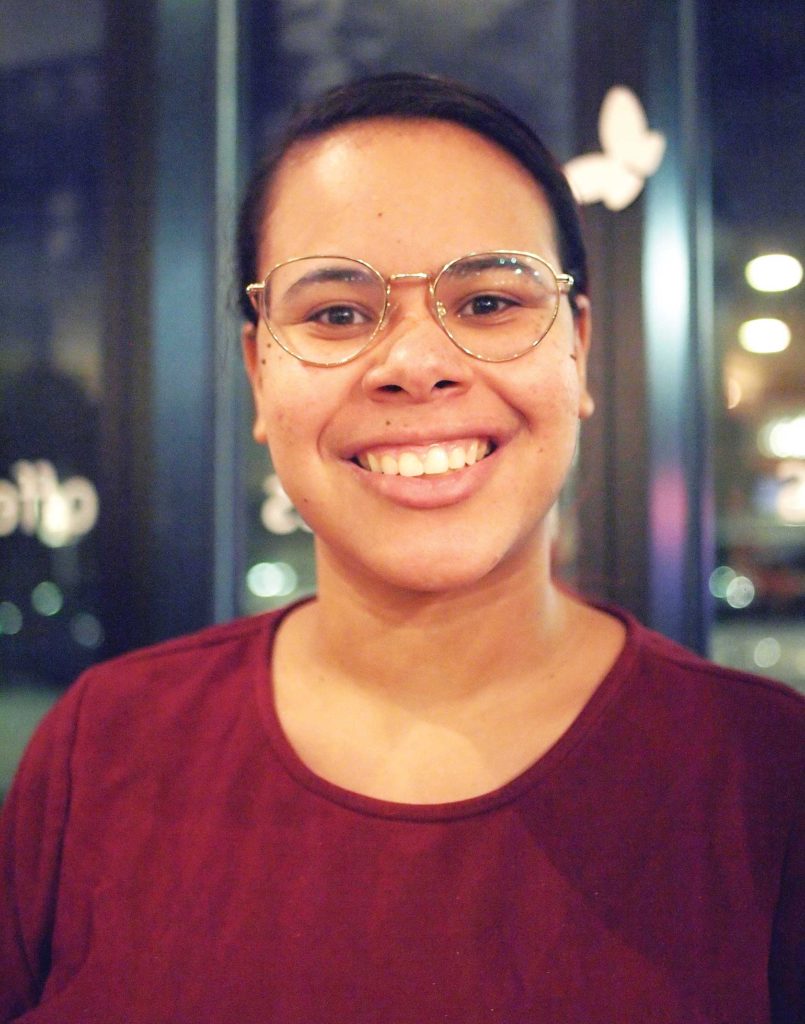
For Corean Reynolds, when it comes to nightlife culture in the city, Boston has some growing to do. How the city approaches that growth will be under her guidance in her new role as the city’s Director of Nightlife Economy.
Her appointment, announced at a virtual press conference Feb. 22, will offer Reynolds a chance to help support a wider and more diverse selection of Bostonians.
“I want to thank Mayor Wu for allowing me to be in a position that’s a really innovative and exciting approach to her overall vision and this administration’s overall vision to creating generational wealth, to creating a stronger business community and just a better Boston, a more inclusive Boston,” Reynolds said.
Reynolds previously served as director of economic inclusion for the Boston Foundation and will officially enter her new role March 6. Operating within the city’s Economic Opportunity and Inclusion cabinet, she will be responsible for helping the city strengthen its nightlife scene and building a team to support the effort and to diversify what nightlife means in Boston.
“Her goal will be to focus on the macro level,” said Segun Idowu, Boston’s chief of Economic Opportunity and Inclusion (EOI), “on how we create long-term solutions to have a more vibrant and sustainable nightlife in the city, and how we’re redefining nightlife to be something that’s more than clubs, and more than restaurants and bars, but all of the other activities, initiatives and programs that help to make sure we’re driving forward particularly the mayor’s priority item of a family-friendly city.”
Idowu said a growth in Boston’s nightlife is part of a series of efforts the city is taking to move its economy forward following the effects of the COVID-19 pandemic.
“One of the ways we’re seeking to do that is to make sure that we’re creating a city that is a 24-hour city, that is a vibrant city,” Idowu said. “One that also looks at the economy of our city beyond the 9-to-5 or 8-to-4 hours and looks at all the hours after, and how we can create a more robust and vibrant economy for the whole day and for the whole night.”
One of Reynolds’ goals in the role will be to assess how Boston provides infrastructure for nightlife-goers and employees, taking on issues like late-night transit, which she said will help more people get work and support businesses.
“If we make it easier to work at night, then folks will have more access to opportunities to work and to build family-sustaining wages and build wealth amongst their families,” Reynolds said. “The transportation issue is a part of that: How are these folks getting home? Past 1 a.m., you can’t get on the T. Are people spending their hard-earned money on Ubers every night to get to work? I really want to focus on the people who are making this happen, and also on the businesses … and how we can support them so they can grow and expand past what they’re doing now.”
Reynolds said her background at the Boston Foundation, where she worked to support business equity, positions her well to also address equity issues facing Boston’s nightlife scene.
“I think there’s an equity issue across the board when it comes to creating a robust economy, but creating a robust nightlife economy? That issue is really relevant,” Reynolds said. “How do we create an economy that’s inclusive of all? That people feel like they belong to, that they feel supported, that is safe? I’m really excited to dig deep into that work.”
George “Chip” Greenidge, founder and director of Greatest MINDS, said he hopes the appointment of a director of nightlife economy will help bridge gaps that Boston’s Black community has felt when it comes to nightlife.
“I am proud that Mayor Wu has moved in this step to look at some of the wrongs and injustices that have been happening with the Black community in terms of entertainment and restaurants in the city of Boston, particularly in the Roxbury, Dorchester, Mattapan area.” Greenidge said.
Greenidge said Boston has long seen what he calls a “nightclub apartheid” that separates nightlife-goers from Boston’s communities of color and prioritizes white-owned establishments. For example, Bostonians of color in the nightlife industry might face being relegated to off-nights —Monday through Wednesday — rather than given opportunities to participate on Thursday, Friday and Saturday.
The issue has been overlooked by previous mayoral administrations, he said.
“I brought this up 20-plus years ago with the Menino administration, and it was pretty much put on the back burner, pretty much ignored,” Greenidge said.
Greenidge said he thinks the new Director of Nightlife Economy role is a good step, along with other related work the city is doing generally.
Broadening the definition of nightlife in Boston will be part of Reynolds’ new role.
“I love that the city prides itself on its sports and its pubs, but what else do we have to offer?” Reynolds said. “How can we make Boston’s nightlife seem more inclusive, just like we’re saying we are?”
For Idowu, that broader focus will allow the city to consider the wants and needs of a greater array of Boston residents.
“There are many people in Boston who don’t like drinking. What are their options for participating in nightlife that do not include clubs and bars and drinking?” Idowu said. “We just want to think holistically about what nightlife could look like and what other recreational options there are, programming, etc. that include all Bostonians, and not just those that might prefer something more than water.”
Reynolds and Idowu pointed to options like the night market in Boston’s Little Saigon and the Roxbury International Film Festival.
Lisa Simmons, executive director of Roxbury International Film Festival, said that it’s important to create other nighttime gathering spaces.
“It’s just an important part of bringing a city together and having people from all walks of life participate in something that’s creating conversation and creating opportunity for people to mix and mingle — not just over drinks, but over really great programming that provokes conversation,” Simmons said. “That’s how we come together as a city.”
She called the creation of the nightlife position a bold move that will challenge the conceptions people have about Boston and allow people in creative fields more opportunities to better structure their programing.
“If we have a screening that that goes until 10 p.m., we want to be able to say, ‘OK, now we’re going to go over to the jazz club because that’s open until 1 a.m.’ or, ‘We can go over here for dinner because they’re still open until midnight,’” Simmons said. “It just increases the opportunities for people to gather, for people to network, for people to come together — and that, to me, is a really exciting opportunity.”

